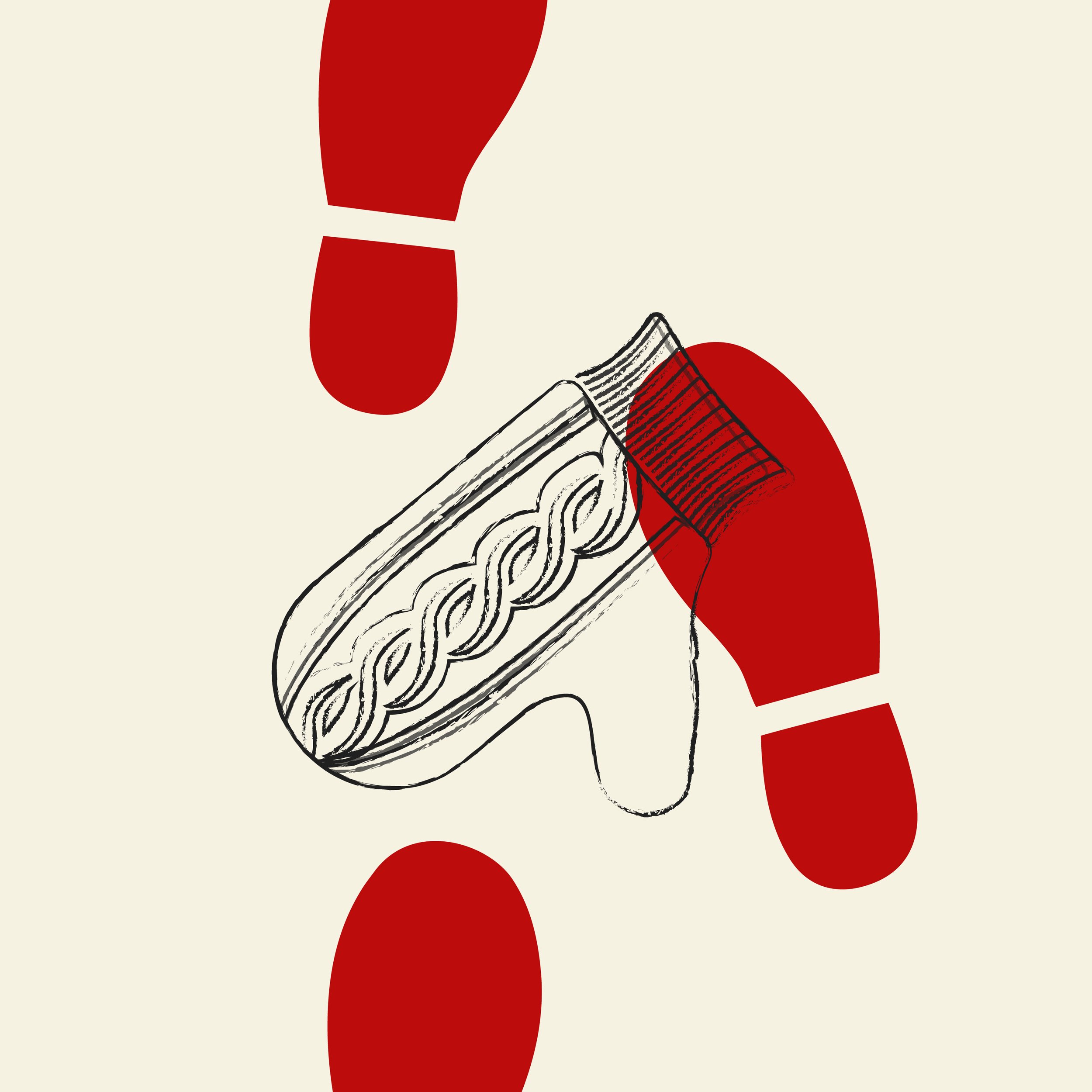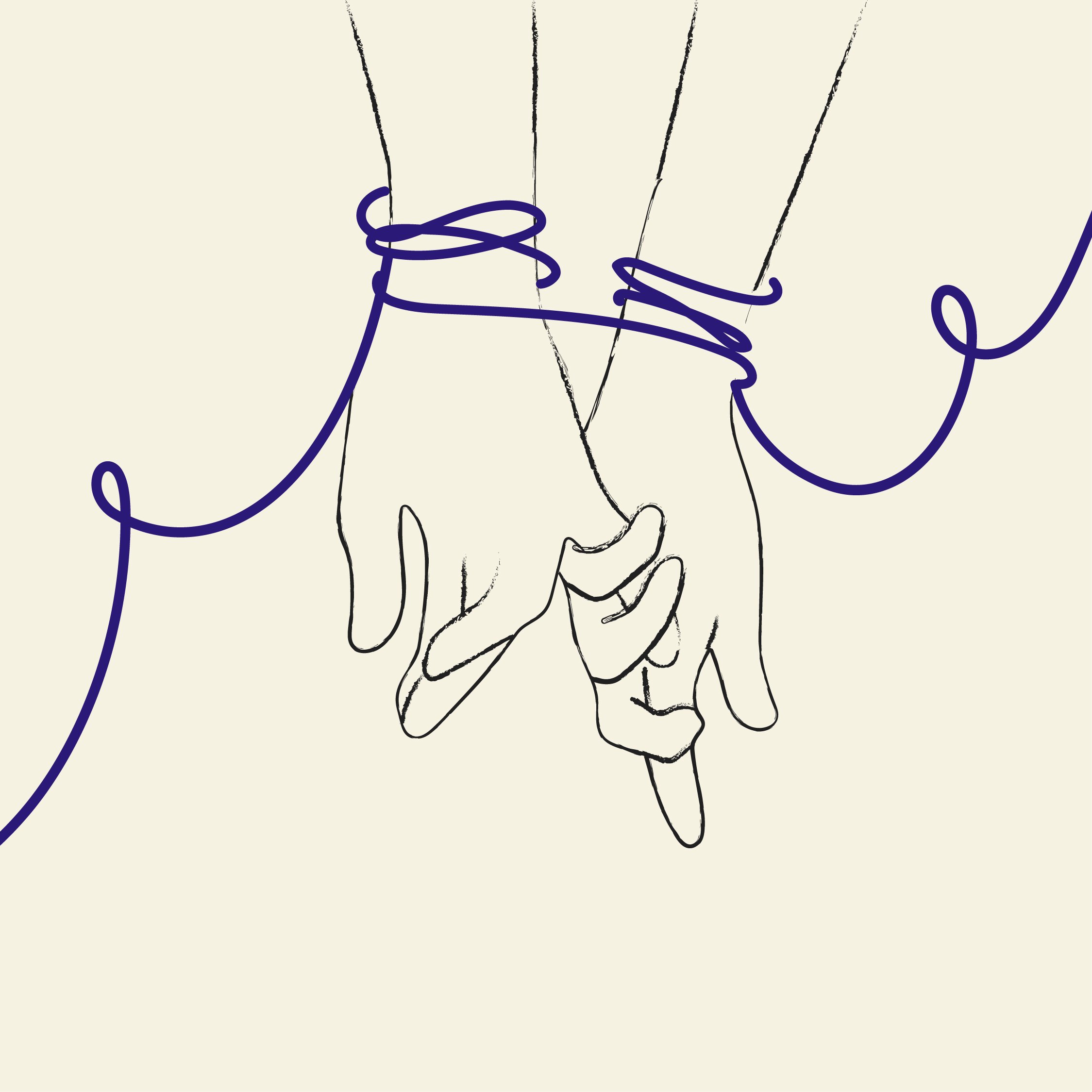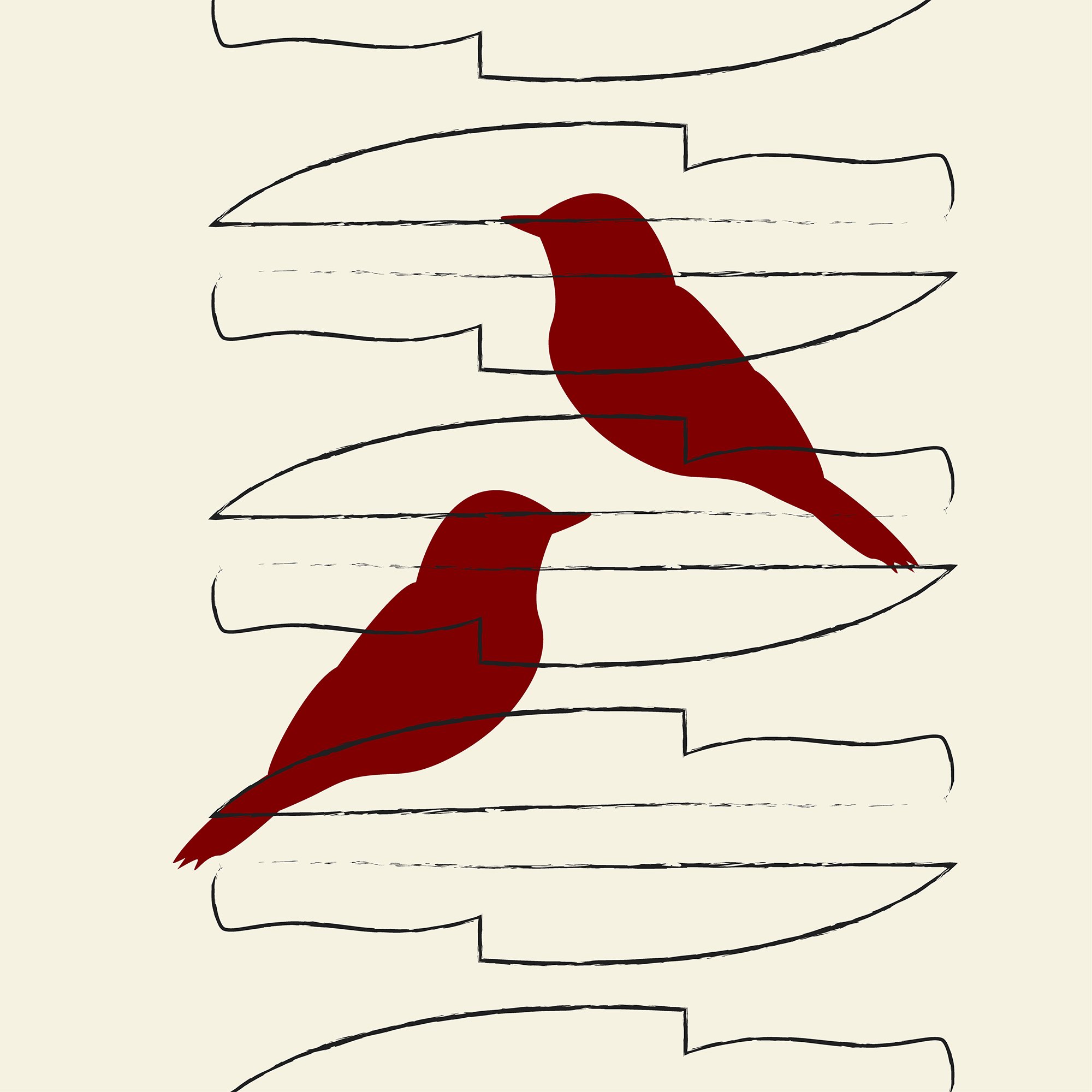The Mitten
“Maybe I did in fact return the woman’s mitten, for the line between reality and fantasy is so tenuous.”
DECEMBER 12, 2024
-
A deserted lane muffled by dense snow; a woman’s mitten, black against the blinding white; a chance encounter — missed, passed by, but not forgotten. These placid images are distant from the scenes of war to which we have grown accustomed in the news and recent literature from Ukraine. They invite us to consider the country beyond the confines of the present moment and its devastated geography.
Their author, Andriy Sodomora, is a renowned scholar and translator, best known for giving the literature of Greek and Roman antiquity a voice in Ukrainian. Born in 1937, Sodomora describes turning to the classics as a means of escaping the intellectual confines of Soviet rule, when the study of Ukrainian history and literature was fraught with questions of nationalism and independence that ran counter to Soviet ideology. The classics, at that time, were “the invigorating breath and the bliss of spring water we drank while suffocating,” he said in a recent interview with Craft Magazine.
In Sodomora’s experimental prose, stories of classical antiquity mingle with those of his youth, adolescence and adulthood in western Ukraine. At a time when the future existence of his country is uncertain, Sodomora’s writing is distinctive for depicting Ukraine as a country with a long and distinctive history. He shows Lviv, established in 1256, to be a truly cosmopolitan city, and gives shape to its specific contours — its cafés and apartments, its archives and parks, a used book market where a familiar “itinerant wind” flips the pages of translated French and German novels from the narrator’s youth. Sodomora’s prose excavates his near and distant past, evoking places and histories through seemingly unremarkable objects: a window display of knickknacks, an attic full of dusty possessions.
We sense that this world is doomed, and that Sodomora is its protector, perhaps the only person who can still recall the shadow cast by a black locust tree cut down a dozen years ago or to notice the absence of a holy fool’s whirligig in a neighborhood that has long since been rebuilt. Despite the tranquility of his world, Sodomora’s memorialized images and ideas elucidate the many losses underway in Ukraine, beyond the obvious losses of life and land.
For Sodomora, loss of culture is inevitable but tragic, and the process of partial memory can offer some consolation. But that is not the case when loss is abrupt, violent and total –– as it is now, during the war — sending everything, large and small, “spinning beyond its boundaries into oblivion,” past the reaches of memory.
— Sabrina Jaszi
I was pulling off my mitten, and suddenly—
my hands stopped.
A memory grazed my heart.
(Ishikawa Takuboku)¹
I was walking down a deserted alley, through the previous night’s snow — deep and fluffy. A narrow foot trail that had sprung up since daybreak led past a gray brick wall. Overlooking it was a school building of the same gray color, whose square pediment clock had long-since gone still and was now missing its hands. Bunches of white-encrusted rowan berries hung above the wall like tilted glasses, filled to the brim with ice-cold burgundy wine. The sky’s all-encompassing blue reached down to the shimmering — almost blinding — white snow, flowing transparently into the stream of the footpath. “Ti-ti, tyu-tyu,” came the clocklike call of some little bird, foretelling the coming of spring. And this was the only audible sound (besides the snow squeaking under my feet) — a greeting to the day’s early light and its resplendent clarity. Anything else that might shake the silence was muffled by fluffy, untouched snow . . .
Suddenly, on its sparkling white surface, I saw a woman’s black mitten. I stood for a good minute, riveted by the striking contrast of matte darkness and radiant white. It seemed that I’d just heard another sound: the voice of that black leather mitten. It lay there wracked with cold, losing the last remaining warmth of a woman’s hand. It looked like a helpless creature, about to freeze. I bent down to pick it up but held back: You shouldn’t take things that don’t belong to you, even if they are lost. And what would I even do with it? At the end of the alley, I took one last look at that spot where the mitten was lying — a black dot on white . . . Turning onto the sidewalk, I sped up. The silence, syncopated with the snow’s squeak, still drummed in my ears, filling up now with the city’s rumble. The pristine white churned into brown porridge beneath my feet. Dulled by the rumble, the dazzling sunny morning and the lost mitten receded deep into my memory — humdrum and daily troubles prevailed.
Then I caught sight of a woman, strolling in front of me. She held a small purse, and also a mitten. A single mitten. I guessed right away that this woman had just walked down the same alley that I had. But she hadn’t yet realized that she’d lost her mitten. I slowed down involuntarily. Hesitated. Should I let her know? What if the mitten were no longer there? Perhaps someone picked it up? Should I go back for it myself? But I couldn’t very well say to a stranger: “just wait for me here.” With each step, the idea of intervening became more ridiculous. Was it even her mitten lying in the snow? Dismissing the obvious answer, I tried to reassure myself and justify my indecision. Then picking up my pace again, I overtook the woman. As I passed, I stole a quick glance at her face. She was thinking her own thoughts, smiling faintly at someone in her mind.
Only the heart’s memory, a delicate thread that binds us to eternity, tries to recover the unrecoverable — the fleeting moment with its mood, colors, and sounds.
Since then, I’ve often walked that winter path — both in my thoughts and in reality — alongside the gray brick wall, above which bunches of frost-encrusted rowan berries glow red, as though in crystal glasses. My eyes are blinded by the frigid, shimmering snow. And every time, I seem to catch sight of that crumpled mitten and imagine overtaking its owner who, despite being on the street, is nonetheless also in a different place, a different time, smiling at someone — someone known only to her. In my mind, I pick up the mitten so that later I can approach the stranger and return the lost object. I even hear my voice: “This isn’t yours, is it?” I see the face of the woman, whose thoughts I’ve intruded upon: First she’s confused but a moment later beams with joy at recovering a lost possession. My eyes keep following the two figures that for a little while still walk side by side. Then they part ways and take separate paths, vanishing into the city crowds. This image appears so vividly before my eyes that I sometimes feel a sense of calm: Maybe that’s what actually happened. Maybe I did in fact return the woman’s mitten, for the line between reality and fantasy is so tenuous.
The ancients professed that “an opportune moment is fleeting.”² And indeed, one can never step in the same river twice. So I catch myself thinking that this isn’t the same path as before. Nor is this the same blue sky streaming into it. Nor is this the same snow squeaking beneath my feet. Nor are these the same sunbeams dancing on the snow; they emanate from the same sun, but it changes with every moment. Nor are these the same clusters of rowan berries glowing red above the alley’s gray brick wall, nor do they glisten with the same frosty juice. That’s not the same little bird, announcing in eternal cadences the coming of some other, new spring. Even that school clock without hands flows with the current of time. And I myself am not the person I used to be. Only the heart’s memory, a delicate thread that binds us to eternity, tries to recover the unrecoverable — the fleeting moment with its mood, colors, and sounds. Memory that by some arcane law tends to send important things spinning beyond its boundaries into oblivion, while fervently cherishing something insignificant and accidental. Like a woman’s mitten, black on the blinding white snow . . .
¹ Rendered in English via Hennadiy Turkov’s Ukrainian translation of Ishikawa Takuboku’s Japanese poem.
² A reference to Seneca’s “Epistle XXII: On the Futility of Half-Way Measures.” The phrase “fleeting opportunity” also echoes the opening lines of Hippocrates’s Aphorisms, specifically, the ars longa, vita brevis maxim.
“The Mitten” is excerpted from the collection The Tears and Smiles of Things (Academic Studies Press, 2024).



